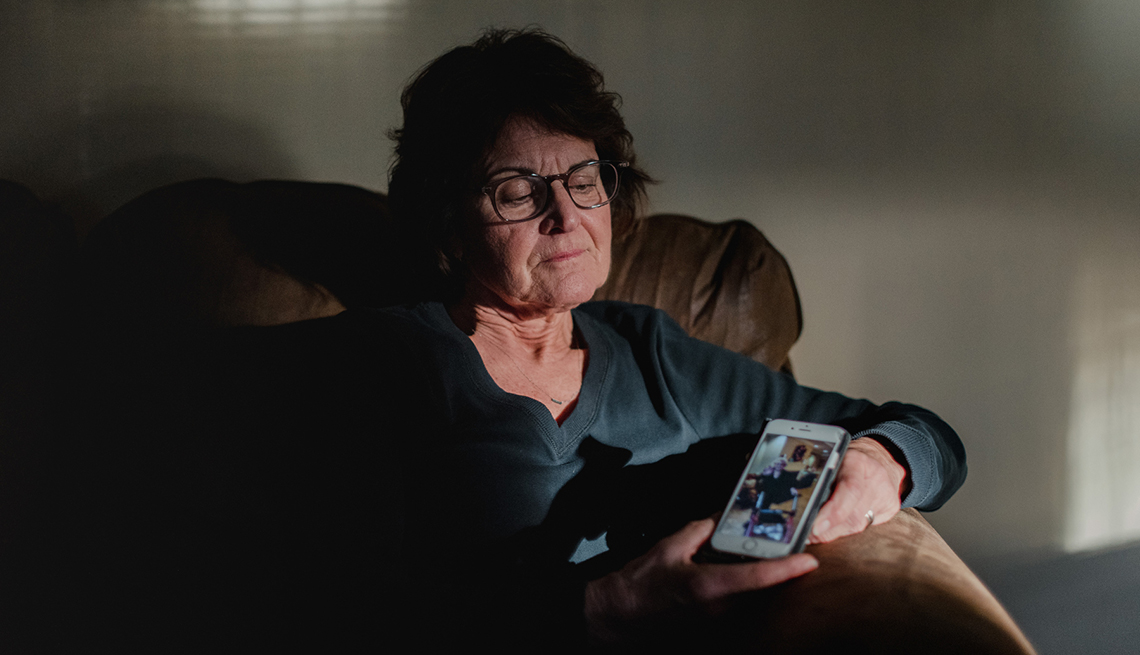AARP Hearing Center

Judi Gimbel, 68, of Mullica Hill, moved her mother, Ida Lenoci, into assisted living four years ago, confident in her decision.
Lenoci, now 95, kept a full calendar of arts and crafts classes, bingo games, church services, musical performances and more.
But that came to an abrupt halt in March, when the COVID-19 pandemic began ravaging long-term care facilities across New Jersey. Visits were canceled, and residents were isolated, to limit the spread of the coronavirus.
Lenoci, who had hardly used her room before, began spending nearly every minute there, Gimbel said, eating meals alone and no longer socializing with others.
That kind of isolation was one of many problems the state Legislature addressed this year. It adopted a series of changes to long-term care, championed by AARP New Jersey, that are now going into effect.
Gimbel said that after months of isolation, her mother was lonely, bored and depressed.
“She’s just a shell of who she used to be,” she said. “I feel like the risk to her mental and physical health from the isolation is far worse than the risk of COVID.”
New Jersey has one of the highest rates of coronavirus-related nursing home deaths. More than 7,200 residents and staff of care facilities have died of the virus since March, representing about half of the state’s total deaths.
“It’s just a tragedy,” said Evelyn Liebman, AARP New Jersey’s director of advocacy. “It’s really important to change how these facilities operate in this kind of public health emergency.”
Package of reforms
With support from AARP, the state is taking steps to overhaul its long-term care system. After a June report by the firm Manatt Health recommended sweeping changes, the Legislature fast-tracked a package of reform bills that Gov. Phil Murphy (D) has signed into law.
One measure is meant to prevent the isolation Gimbel’s mother experienced by boosting the capabilities of long-term care facilities to allow residents more virtual socialization.
Assemblywoman Valerie Vainieri Huttle (D-Bergen), a primary sponsor of the legislation, said many residents lost the extra layer of care they received from family and friends who could no longer visit during the pandemic.
“They were part of the caregiving community,” she said. “Isolation can lead to devastation.”
Another law established the Long-Term Care Emergency Operations Center in the state’s Department of Health to make the needs of these facilities a priority during disease outbreaks and other emergencies.
Vainieri Huttle noted the shortage of personal protective equipment for long-term care facilities early in the pandemic.
Another reform, sought by AARP New Jersey for five years, requires nursing homes to maintain minimum ratios of direct-care staff to residents.
Long-term care workers will receive a $3 minimum-wage increase, initially funded by 60 percent of the $62.3 million in state funds another new law allocated to these facilities.
Legislation also established the New Jersey Task Force on Long-Term Care Quality and Safety, made up of 27 government and public members. It will recommend improvements in several areas, including staffing levels and capital investments.
Look for updates on COVID-19 cases and state restrictions during the pandemic at covid19.nj.gov/index.html.
Christina Hernandez Sherwood is a writer living in Collingswood, NJ.
More on Long-Term Care































































